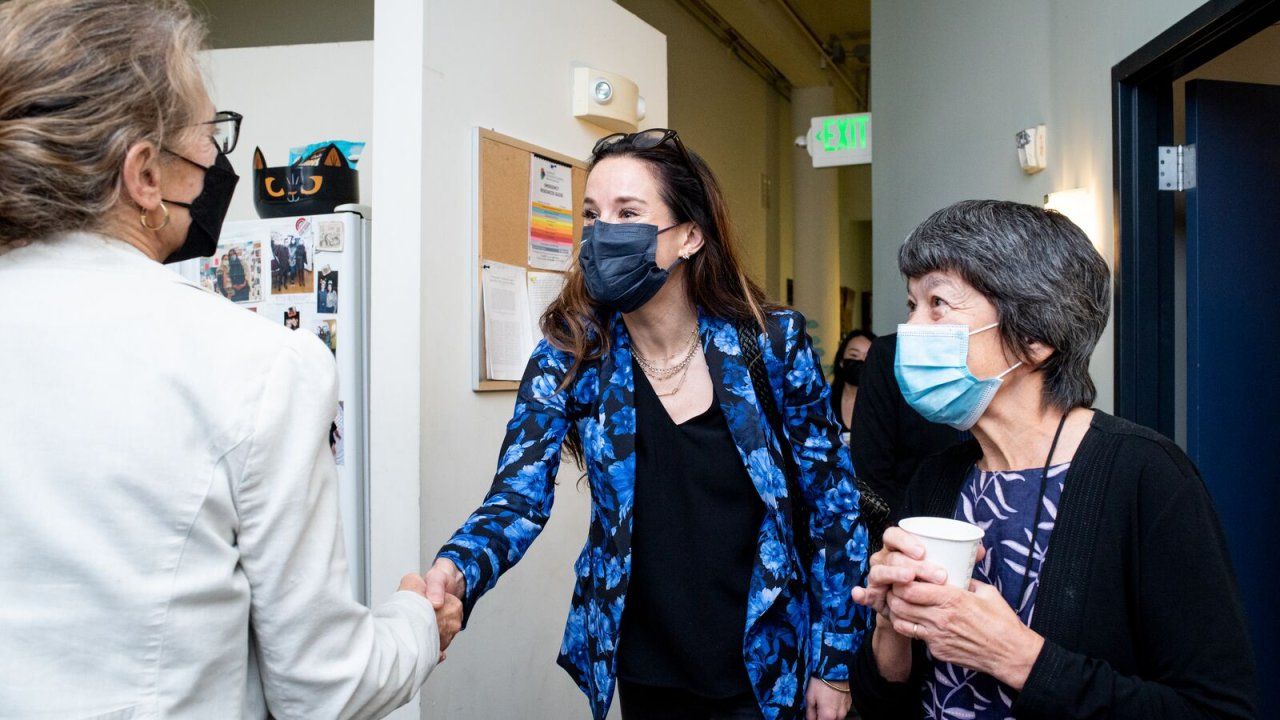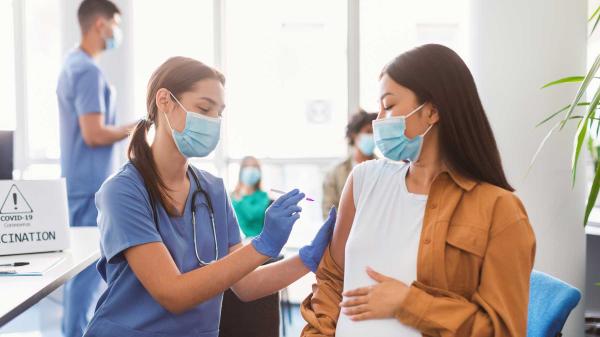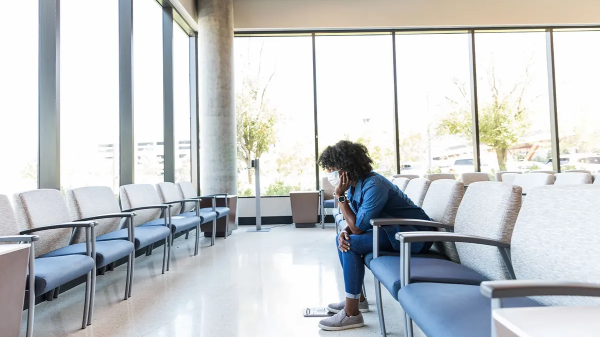Supporting Victims of Violence Leads to Safer Communities, Says Justice Reform Champion
 Ashley Biden, MSW, attended a site visit to UCSF Trauma Recovery Center in San Francisco. The visit included a tour of the facility, presentations and panel discussions. She is introduced to Mary Burke, (left) MD, Professor, UCSF Psychiatry, by Alicia Boccellari, (right) UCSF TRC Director of Special Programs and NATRC Executive Director.
Ashley Biden, MSW, attended a site visit to UCSF Trauma Recovery Center in San Francisco. The visit included a tour of the facility, presentations and panel discussions. She is introduced to Mary Burke, (left) MD, Professor, UCSF Psychiatry, by Alicia Boccellari, (right) UCSF TRC Director of Special Programs and NATRC Executive Director.
Ashley Biden, MSW, social worker and justice reform advocate, was welcomed to UC San Francisco by colleagues and representatives from organizations supporting victims of violent crime.
Biden, a consultant to the National Alliance of Trauma Recovery Centers, which was pioneered at UCSF, participated in a roundtable on the role of trauma recovery centers at the Nancy Friend Pritzker Psychiatry Building. She told the audience that people who were victimized by violent crime were themselves at risk of becoming perpetrators of crime.
Everyone has faced trauma in their lives, but many marginalized people do not have access to the mental health services that would best serve their needs.
Ashley Biden, MSW
Trauma recovery centers may assist victims in applying for compensation, moving to a safer neighborhood or upgrading home security, acquiring job training, and getting therapy in their own homes if they are too traumatized to leave home or even get out of bed, said Biden, whose work also includes leading a trauma support group for 20 women who have been released from prison, and consulting for the Boys and Girls Clubs of America.
“It’s known that hurt people hurt people,” she said. “Disproportionately high numbers of victims of violent crime are low-income, have lower levels of education, face systemic racism and deal with untreated mental health conditions. The most harmed are frequently the least helped.
Trauma Recovery Centers
The first trauma recovery center was piloted at UCSF in 2001 as a state-funded program, and is now a national model with trauma recovery centers growing across the U.S.. Centers can assist victims in:
-
applying for compensation
-
moving to a safer neighborhood
-
upgrading home security
-
acquiring job training
-
getting therapy in their own homes
“When they get restitution and support to handle their anger and triggers, and receive treatment for depression, they heal. We create a network in which everyone has the resources to heal, at no cost to them, using evidence-based treatments,” she said, noting that her first taste of societal inequities came from campaigning for re-election with “my dad” when he served in the United States Senate, and noticing that some residents “lived in nice homes and others did not.”
The flagship trauma recovery center at UCSF was founded in 2001 by roundtable co-participant Alicia Boccellari, PhD, professor emeritus at the UCSF Department of Psychiatry and Behavioral Sciences, and director of the National Alliance of Trauma Recovery Centers. The program has subsequently evolved from a small state-funded program to a national model with 39 branches in eight states and growing.
Data shows that the impact of trauma recovery centers has resulted in 71% of sexual assault survivors receiving mental health care, versus 6% for usual care. Access to mental health service has jumped from 38% to 72%, co-operation with police has improved with a 69% increase in the number of police reports filed, and there has been a 41% drop in homelessness. Other data shows a decrease in symptoms of post-traumatic stress disorder and depression, a drop in alcohol use and improvements in both mental and physical health.
Biden and Boccellari were joined at the roundtable by Lenore Anderson, JD, president of the Alliance for Safety and Justice, and Tinisch Hollins, executive director of Californians for Safety and Justice. The event was moderated by Sarah Metz, PsyD, health sciences associate clinical professor in the UCSF Department of Psychiatry and Behavioral Sciences and of the UCSF Weill Institute for Neurosciences, and director of the Division of Trauma Recovery Services.
“Everyone has faced trauma in their lives, but many marginalized people do not have access to the mental health services that would best serve their needs,” said Biden. “The trauma recovery center model just makes sense. It’s a one-stop shop that offers survivor-centered care.”




